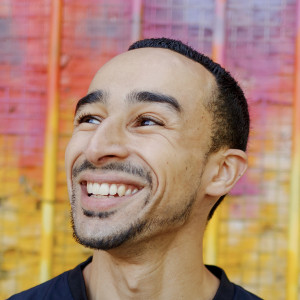Chapters
Interviews are often something many people dread, and teacher interviews are no exception. To get a job in education though, you’ll need to pass one. Whichever route you take to get into teaching, the interview will ultimately determine whether you make it or not.
Yet it doesn’t need to be difficult.
If you prepare effectively and make sure you go in fully equipped to deal with whatever the interviewer can throw at you, then you’ll have a stronger chance of success.
The way you prepare for a teacher interview is by knowing the role both inside and out, reviewing questions you may be asked, and being ready to answer any hypothetical by putting yourself in the teaching role.
First, we’ll take a look at some of the ways you can prepare in terms of your suitability as a teacher and mindset, then we’ll take a look at more practical things you can do like working through past interview questions.

How to Prepare Effectively
When you know you have an interview coming up, it can be hard to get the better of nerves and that overwhelming feeling of being unprepared.
However, there are ways to manage the nerves and enter the interview with confidence.
Figure Out Your ‘Why’
One of which is to delve deeper into the reasons why you want to be a teacher. It could be that you’ve already given it a lot of thought, or even something you’ve never considered at length, just something you’ve always known you wanted to do.
Whatever the case, getting to the bottom of your motivation for becoming a teacher will help tremendously with not only the interview but also when the time comes to lead your own classes.
If you know exactly what is driving you to be a teacher, you will be able to impress the interviewer and show them that you have strong reasons for pursuing the career.
It’s even worth practising summarising these reasons into a sort of mission statement. That way, it will be much easier to recall when the time comes, and it will make it seem like you are a driven candidate.
If possible, tell a story of the moment you became interested in teaching. That will definitely score highly with the interviewer and show that you care.
If you don’t stop to think about your ‘why’ for becoming a teacher, you may get caught off guard when asked why you believe this is the perfect job for you. It can also make the interviewer doubt that your heart is truly in it, which is a big deal since the job comes with high stakes as you’ll be responsible for educating the leaders of tomorrow.
Hone Your Teaching Style
-

Figure out what your teaching style is to better prepare for tricky questions.
Ok, so it might be difficult to hone a teaching style you haven’t had much of a chance to implement yet, but it’s crucial that you have a clear idea of what your teaching philosophy is.
When the question comes as to your teaching philosophy - which it inevitably will - you’ll want to have a pre-prepared answer ready to rattle off.
If you don’t know how to answer this question, there are a few main factors to consider.
First, you want to think about your own personality, and how that could mesh with how you act as a teacher. Your techniques for managing a class might be based on how you personally enjoy learning. If you enjoy projects and group work, then you’ll probably be more likely to implement that style of working in your classes.
Next, and perhaps more importantly, consider the general teaching philosophy of the school you’re applying to. See if you can find out more information about the school through their website and other resources. Better still, if there’s a Latin motto the school runs on, then you could try to tie your philosophy to it for extra points.
Lastly, it can be helpful to engage in some visualisation exercises. Imagine you are the teacher in the school you are applying for. What does your classroom look like? How have you decorated it to create an encouraging learning environment? What tools and resources are you using to keep the students’ interest in your lessons?
Answering questions like this while you visualise what life would be like as a teacher in your preferred school can help you create a clear image of your teaching style and philosophy.
Your teacher training should have adequately prepared you too for questions about your teaching style.
Problem-solving
You can bet that at some point during your teacher interview, you will be required to answer some hypotheticals and solve some imaginary problems that could arise in the classroom.
So while it’s all well and good to focus on your past teaching experience and current skill set, you will also need to set your mind to the future if you are to pass the interview with flying colours.
In order to prepare yourself for questions that invite you to suggest how you would deal with a hypothetical issue, you need to know what these issues are likely to be.
One way is to browse the many websites which list the most common teacher interview questions so that you can develop an answer for each possible question.
There will still be an unknown element in your interview though, the possibility that you are asked a question that you haven’t come across before in your research.
To be best prepared for this type of question, spend some time thinking about what issues could arise in the classroom, covering everything from behavioural problems, to technical difficulties, to issues understanding the lesson material.
Past Experience
Your past experience teaching should be something you lean on as much as possible during the interview.
Even if this experience is limited, any time spent in a classroom in a teaching role can give you great insight and help you answer tricky questions in an interview.
If for example you are asked about how you would establish good routines for the students to follow, you could draw upon your past experience.
Even if you yourself didn’t come up with a routine, it’s likely the teacher/s you worked with had some kind of daily task or routine that you can develop into your own idea.
In fact, for a lot of the questions you are asked, it isn’t a terrible idea to think what a teacher you admire would do in that situation. This is especially useful if you find yourself blanking for whatever reason.
Of course, you want to make the answer as personal to you and your approach as possible, but you can still borrow heavily from teachers you’ve worked with or been taught by.
Example Interview Questions for Teachers
-

Avoid nasty surprises by familiarising yourself with some common questions.
Once you’ve spent a good amount of time preparing for the interview and solidifying who you want to be as a teacher and why you can move on to practising real questions you might be asked.
We’ve compiled a brief list of some of the most common questions that come up in teacher interviews and some advice on how you could answer each of them.
- Why should we hire you to teach here?
This is a tricky question that can throw you off if you’re not prepared for it. It’s a question that might seem obvious, but at the same time, it can bring up doubt and uncertainty as to why you deserve that position over another candidate.
To provide a solid answer to this question you need to know what your greatest strengths are and be able to explain how they can help the learning environment and student performance at the school.
What experiences or novel approaches and ideas to teaching do you have that might not have occurred to others applying for the same job?
- How do you assess student performance?
This is a question that you will almost definitely be asked, so it’s worth thinking carefully about your teaching philosophy and how you intend to evaluate the academic performance of your students.
If you have past experiences grading or assessing students in interesting ways, you should definitely bring these up to use as examples. You could also talk about how your assessments encouraged the students to work hard and study outside of class. Even better, use a past student you’ve worked with as an example of a success story.
- How do you handle classroom management?
The issue of classroom management is inevitably going to come up in your interview.
To give the best possible answer, you should paint a picture for the interviewer of how a typical class would look. Give them an insight into your teaching philosophy, and everything that entails. Explain the values you will instil in the students and how you will uphold them.
Talk about how from the first day you will establish your rules and punishment/reward systems so the students know exactly where they stand. It’s also worth mentioning that you’re aware bias toward well-behaved students exists, and that you plan to be fair and consistent with all the pupils.
- How do you motivate students to learn?
This is a big one.
If you can’t answer this question, then what confidence will the school have that you can boost grades and get the most out of the students academically?
Don’t worry though, there are ways to tackle this question.
What might impress the interviewer is to address the fact that different students have different learning styles, and it’s important to cater to each of them.
Acknowledge that visual learners might take in more information from video, while others might learn more through the reading text aloud.
Talk about how you will incorporate different elements into each lesson so that you don’t exclude any learning styles.
You could also mention reward systems like ClassDojo, and how you could use them to keep students focused.











